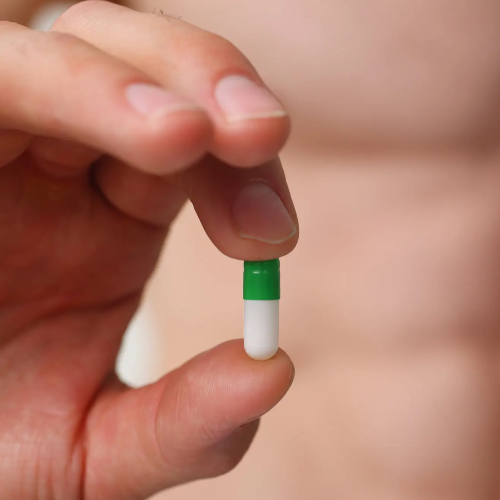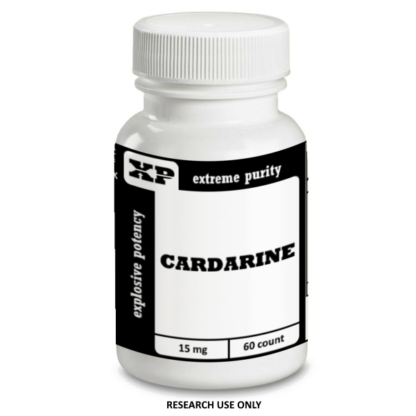
Cardarine: Unveiling the Truth -SARM or PPAR-delta Agonist?
In the world of fitness and bodybuilding, new supplements and compounds seem to pop up every other day, promising miraculous results and revolutionary breakthroughs. One such compound that has caused a stir in recent times is Cardarine. But what exactly is Cardarine, and is it a SARM (Selective Androgen Receptor Modulator) or a PPAR-delta agonist? Let’s dive into the nitty-gritty of this intriguing compound and unravel the truth.
Contents
The SARM Saga:
First things first, let’s get the SARM story straight. SARMs, or Selective Androgen Receptor Modulators, have gained popularity as a class of compounds that interact with androgen receptors in a selective manner. These receptors play a crucial role in muscle growth, bone health, and overall physique. SARMs are known for their potential to target these receptors specifically, thereby promoting muscle growth while minimizing unwanted side effects commonly associated with anabolic steroids.
Now, where does Cardarine fit into this picture? Well, hold your horses, because here comes the plot twist – Cardarine is NOT actually a SARM. Yes, you read that right. Despite often being lumped together with SARMs, Cardarine follows a different script altogether.
Introducing PPAR-delta Agonists:
Cardarine, also known by its scientific name GW501516, belongs to a class of compounds known as PPAR-delta agonists. Now, before your brain starts going haywire with scientific jargon, let’s break it down. PPAR stands for Peroxisome Proliferator-Activated Receptor, a group of proteins that regulate various cellular functions. These receptors come in different forms, with PPAR-delta being one of them. When activated, PPAR-delta plays a role in energy metabolism, fat burning, and improving endurance.
So, what does Cardarine do in all of this? Well, it’s like a director who calls the shots for the main actor – PPAR-delta. Cardarine binds to PPAR-delta and cranks up its activity. This, in turn, leads to a cascade of effects, including increased fat oxidation (yep, that’s burning fat for energy), improved insulin sensitivity, and enhanced endurance. It’s like giving your body a little nudge to rev up its engines and burn through those extra calories.
The Performance Enhancer:
Now that we’ve established Cardarine as a PPAR-delta agonist, you might wonder how it ended up in the same conversation as SARMs. Well, the plot thickens. Cardarine’s ability to enhance endurance and stamina has led athletes and fitness enthusiasts to dub it as a performance-enhancing compound. Imagine having an extra tank of fuel during your workouts – that’s the kind of advantage Cardarine seems to offer.
Athletes have reported improved cardiovascular performance, increased endurance, and enhanced recovery when using Cardarine. It’s like giving your body a secret weapon to tackle grueling training sessions and push beyond your limits. However, it’s important to note that while Cardarine can be a valuable tool for performance, it’s not a magic wand that transforms you into an instant Olympian. Hard work, dedication, and a well-rounded training regimen remain the cornerstone of any fitness journey.
Navigating the Controversy:
With Cardarine’s rise to fame, controversies and concerns have also made their entrance. One notable issue revolves around its potential impact on cancer. Some studies conducted on rodents indicated a link between Cardarine and the development of certain cancers. However, it’s essential to exercise caution when translating findings from animal studies to humans. The doses used in these studies were often astronomical compared to what a typical human would consume.
As of now, there isn’t concrete evidence to definitively state that if you buy cardarine, itposes a cancer risk in humans at reasonable dosages. Nevertheless, like any supplement or compound, it’s crucial to approach Cardarine with a balanced perspective. Consulting with a healthcare professional before adding it to your regimen is a smart move, especially if you have pre-existing health conditions.
Closing Thoughts:
In the grand theater of fitness and bodybuilding, Cardarine plays a unique role. It’s not your typical SARM, but rather a PPAR-delta agonist that shines a spotlight on endurance, fat burning, and potential performance enhancement. As with any supplement or compound, it’s wise to do your homework, tread cautiously, and prioritize your health and well-being.
So, the next time someone asks whether Cardarine is a SARM or a PPAR-delta agonist, you can confidently answer, “It’s a PPAR-delta agonist, my friend!” Embrace the knowledge, make informed choices, and remember that while Cardarine might add an exciting twist to your fitness journey, it’s your dedication and hard work that truly steal the show.
CARDARINE (GW 501516) – 60 Capsules x 15 mg
Increased Endurance and Stamina Improved Fat Loss Quicker Recovery Time Enhanced Focus and Mental Clarity Effective Solution for Enhancing Performance No Negative Impact on Hormonal Balance Can Be Used by Both Men and Women Suitable for All Types of Athletes and Fitness Enthusiasts Convenient and Easy to Use
Resources:
Note: This content is for informational purposes only and does not constitute medical advice. Please consult with a healthcare professional before using any supplements. All products sold on SUPPLEMENTSXP are for research purposes only and not intended for human or animal consumption.









